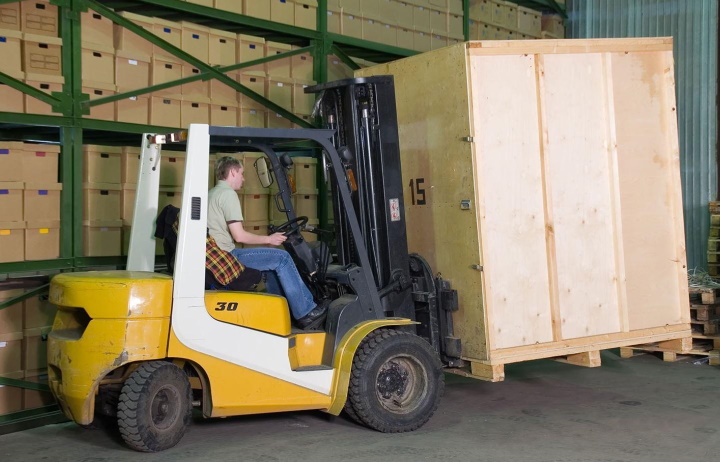
Australia has rigorous warehousing safety standards and for good reason. Warehouses can be a dangerous place to work, with heavy goods, vehicle and people traffic, high-up storage spaces and obstacles providing potential hazards for employers.
Another thing that should never be overlooked is forklift safety. Naturally, you won’t be operating a forklift without a licence, but this doesn’t mean you can ease up on safely operating the machine!
It’s easy to become too comfortable and form bad habits like mucking around and forgetting to check your forklift parts, but this is often where real trouble starts.
So, it’s always good to avoid doing the following things when operating your forklift in the warehouse.
Skipping inspections
Forklifts should be inspected each day before operation. Forklifts, like other transport equipment, are susceptible to mechanical and structural faults over time, and these can occur on any day.
Therefore, your forklift driver should conduct a complete visual and operational inspection of the forklift before operating it for work purposes. A visual inspection includes looking over the head guard to ensure no bolts have come loose, checking the safety devices, checking the harnesses and other parts of the forklift that could be hazardous.
Next, the forklift driver should perform the operational inspection, being sure to check all mechanisms to ensure that the forklift will work without fault during the shift. This should include checking the brakes, cockpit controls, hoses, sensors, indicators and any other mechanical elements that could be hazardous if not working properly.
Speeding
Forklift drivers, especially those who have been in the role for years, often become too comfortable in the role and try to get every job done as quickly as possible. Sure, this may be good for their efficiency, but it could also be putting them and their colleagues at risk.
Speeding, especially when carrying a heavy forklift load, is extremely dangerous, and is typically what leads to a forklift flipping over. What’s more, speeding in a warehouse situation increases the likelihood of running into a colleague or obstacle and should therefore be avoided.
Forgetting to be aware
In the same way that forklift drivers will often speed to get the job done faster, they might also disregard their situational awareness. This can include forgetting to check behind them when reversing or failing to indicate when turning. This disregard for situational awareness can lead to all kinds of injuries for both the driver and their colleagues.
Mucking around
Whether you’re an experienced forklift driver or not, mucking around on a forklift should always be avoided. There would be absolutely nothing worse than causing an accident simply because you were messing about on a forklift! If you’re the manager of a warehouse and see someone mucking around on a forklift then this should be dealt with immediately.
Raise/lower loads when forklift is in motion
Raising or lowering a forklift load when in motion makes the forklift highly unstable and risks dropping the load on the ground. A forklift load should only be raised or lowered when the forklift is stationary and in front of the location of dispatch.
Allow someone to stand underneath or next to a raised load
This is another thing that could be absolutely disastrous in a warehousing situation. Despite the high standard of forklift operation in Australia, you can never be certain that a load is completely secure - the risk of a load falling onto someone should always be absolutely avoided.




